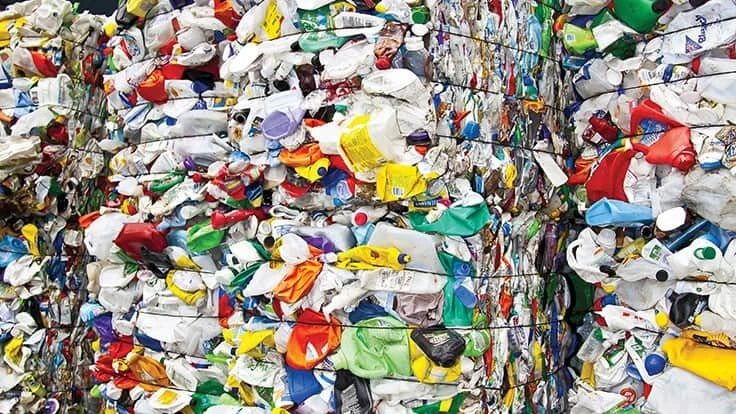
Image coutesy of Shutterstock
S&P Global Platts launched six new daily price assessments in its suite of assessments for recycled plastics in late June. The assessments include:
- recycled high-density polyethylene (r-HDPE) natural and mixed color bales and r-HDPE pellets in the U.S. on a FOB Chicago basis;
- black recycled polypropylene (r-PP) pellets and clear r-PP pellets delivered duty paid, where applicable, within Northwest Europe (includes Germany, Benelux region, France and Switzerland); and
- recycled natural low-density polyethylene (r-LDPE) pellets in Asia.
“Underpinned by a robust price assessment methodology, the new assessments of three recycled polymer types are the first-of-kind in their respective regions and will help market participants understand how recycled plastics are evolving into tradable commodities,” according to the company.
Ben Brooks, head of plastics recycling price reporting, S&P Global Platts, says, “We are pleased to broaden our coverage of recycled plastics prices, offering market participants crucial new insight into spot market values across additional types of recycled polymers. Providing transparency to the key trading regions of these still-evolving markets is particularly important at a time when the supply of quality recycled plastics raw materials is presenting a key challenge and the nascent markets are increasingly in the consumer and legislative spotlights.”
Brooks tells Recycling Today that the new assessments are in response to what S&P Global Platts is hearing from the market. “What we are seeing and hearing is that recycling commitments and initiatives and ESG (environmental, social and governance) factors around plastics are broadening. It’s not just a PET (polyethylene terephthalate) focus.”
He adds, “Historically, the recycled polyethylene terephthalate (r-PET) market is the most advanced of the recycled markets and one which has been heavily targeted by legislation. But as the broader marketplace recognizes the ever-increasing need to incorporate more recycled content into everything from consumer packaging to consumer durables and automotive parts, the need for transparent, robust data and insights will only grow.”
Additionally, the market is becoming more global, Brooks says, with recyclers wanting to know prices for their products in other regions of the world.
While he says “waste” bans have hindered the international flow of bales of mixed plastic scrap, trading of high-quality recycled pellets that can be used in packaging has increased.
Also helping to increase demand for recycled polyolefins is uncertainty around virgin polymer supply. While Brooks says imports of virgin material from Asia are on the way to the U.S. and Europe, rising COVID-19 cases in parts of the region could quickly affect exports. He says virgin HDPE prices in the European Union have fallen rapidly on expectations that imports would be arriving from Asia. However, r-HDPE has remained expensive, though stable in price as of early July.
Brooks adds that r-HDPE pellet buyers would prefer to stick with their suppliers even though the price is high rather than purchase less expensive virgin material. “Even in best of times, supply is tight,” he says of r-HDPE. “If they drop out, they may not be able to get back in.”
Latest from Recycling Today
- China to introduce steel export quotas
- Thyssenkrupp idles capacity in Europe
- Phoenix Technologies closes Ohio rPET facility
- EPA selects 2 governments in Pennsylvania to receive recycling, waste grants
- NWRA Florida Chapter announces 2025 Legislative Champion Awards
- Goldman Sachs Research: Copper prices to decline in 2026
- Tomra opens London RVM showroom
- Ball Corp. makes European investment





